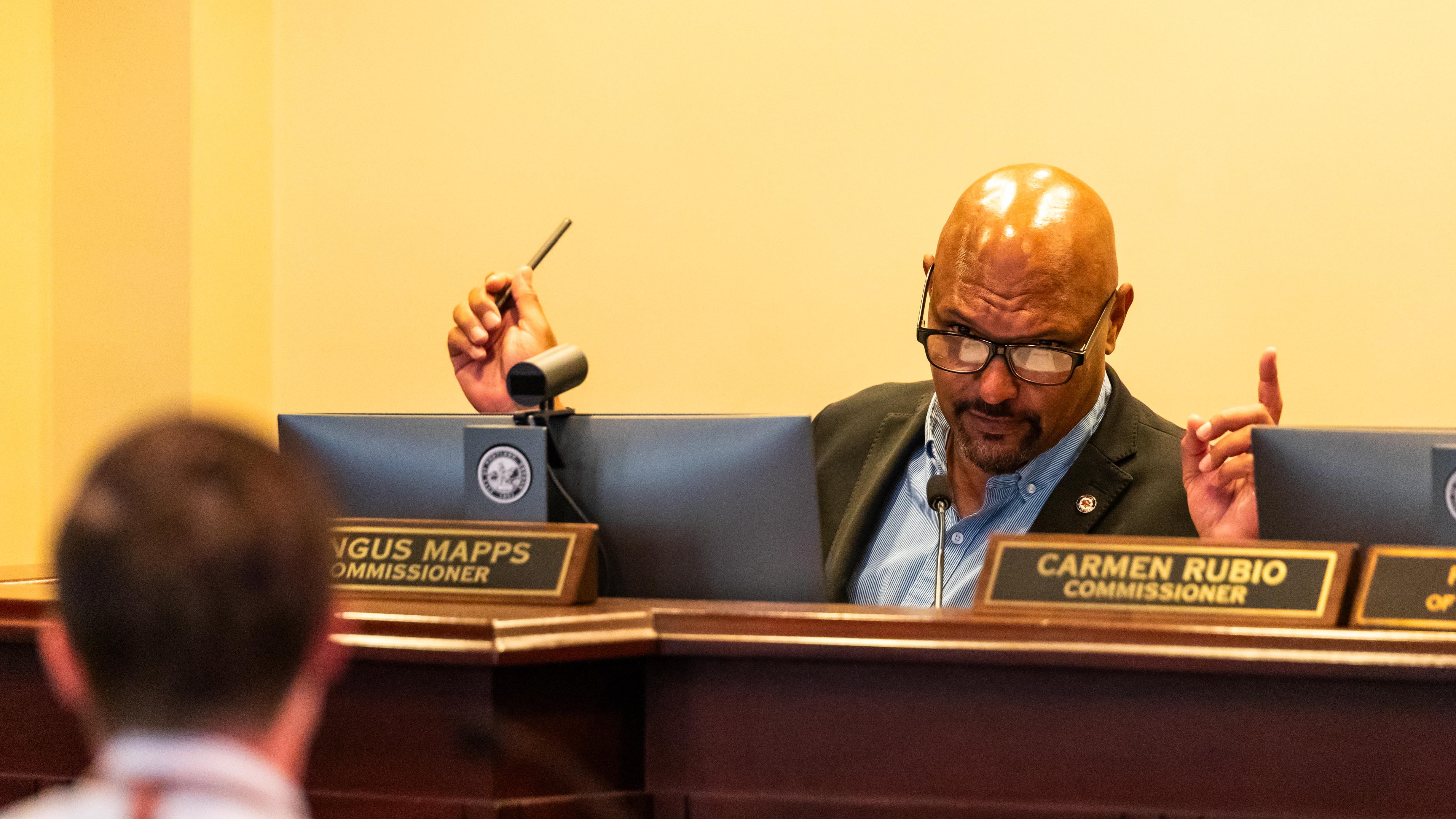The Portland City Council today discussed an extension of the contract with Multnomah County that governs the Joint Office of Homeless Services, the embattled agency that distributes pooled homelessness dollars from both governments.
City and county officials have been negotiating the contract for more than a year amid tensions over how $140 million is spent each year by the office. Over the past two years, the city has threatened multiple times to pull out of the Joint Office, alleging the county has outsized control over the office and its spending. But it’s never quite pulled the plug, out of fear that shelters would close.
The City Council on Thursday discussed at length the three-year contract that’s now on the table. It is likely to vote on the contract next week, but in the meantime the council passed a number of amendments that could make the Multnomah County Board of Commissioners bristle. (The county board approved the contract last week. Because the city passed amendments, the county board will have to vote to approve the contract again, with or without the city’s amendments.)
The two amendments most likely to give the county pause: The City Council added a provision that would convene the council in October 2024 to look at the progress of the Joint Office. Should the council determine the Joint Office isn’t fulfilling promises in the contract, city commissioners could vote to terminate the contract.
The City Council also passed an amendment, introduced by Commissioner Dan Ryan, that would require the Steering Oversight Committee, a voting body made up of city and county officials that governs the direction of the Joint Office, to add a member of the business community, someone who pays the supportive housing services tax, and a “behavioral health expert who is not a current service provider” to the committee.
In the current draft of the contract, the city would have modestly more oversight and input into the spending and direction of the Joint Office. City officials would be voting members of an oversight committee that’s advised by two smaller committees. In the contract, the city and county agreed on specific goals and metrics to reduce homelessness, including halving the current homeless population by Dec. 1, 2025. The contract also gives the city broader access to Joint Office financial records.
WW previously reported on the city’s demands in the new contract. One of the provisions: The city could terminate the contract early without financial penalty.
Much of the tension between the city and county in recent years has been around what the Joint Office spends its dollars on. The city has long argued that more money should be spent on shelters, while the county has resisted those efforts. Case in point: The city, first with its tiny pod villages in 2021 and last summer with establishing its first mass encampment, has gone it alone setting up large shelters. Both times, county leaders eventually came around to supporting the city’s new shelters, but only after dragging their feet.
At today’s City Council meeting, city commissioners expressed skepticism that the new contract would actually make the Joint Office more successful. As WW has reported over the past year, JOHS has consistently struggled to get dollars out the door after an influx of money from the supportive housing services tax passed in 2020.
Members of City Council also expressed concern about how the city’s financial contribution—about $30 million a year—would be spent.
“I’m not entirely sold,” Commissioner Mingus Mapps said. “Frankly, I don’t think I’ve heard an argument for why the city should send over the $31 million, other than historically that’s the way we’ve done it.”
Mayor Ted Wheeler argued that the city, by signing the contract, would give itself the ability to exert influence over a pot of money that’s mostly not its own: “The way I view it is, by making this investment, we get to shape policy and priorities at the JOHS, and we get access to steering 10 times the amount of funding we’re putting in.”
“How are we assured that things aren’t going to be stalled out in implementation [on the county side]?” Commissioner Carmen Rubio asked.
Commissioner Dan Ryan criticized the Joint Office for its longtime aversion to shelter.
“In 2021, it was, all shelters are bad, that’s all I heard at the Joint Office,” Ryan said. “So it’s great to hear that the Joint Office has seen that if you have shelters with services, it was a much-needed change.”
Ryan also criticized the Joint Office for its hybrid work model that allows its employees to work from home most of the time, adding that last time he visited the office, only JOHS director Dan Field was there. “There was no one in the office. You were it at the Joint Office.”

